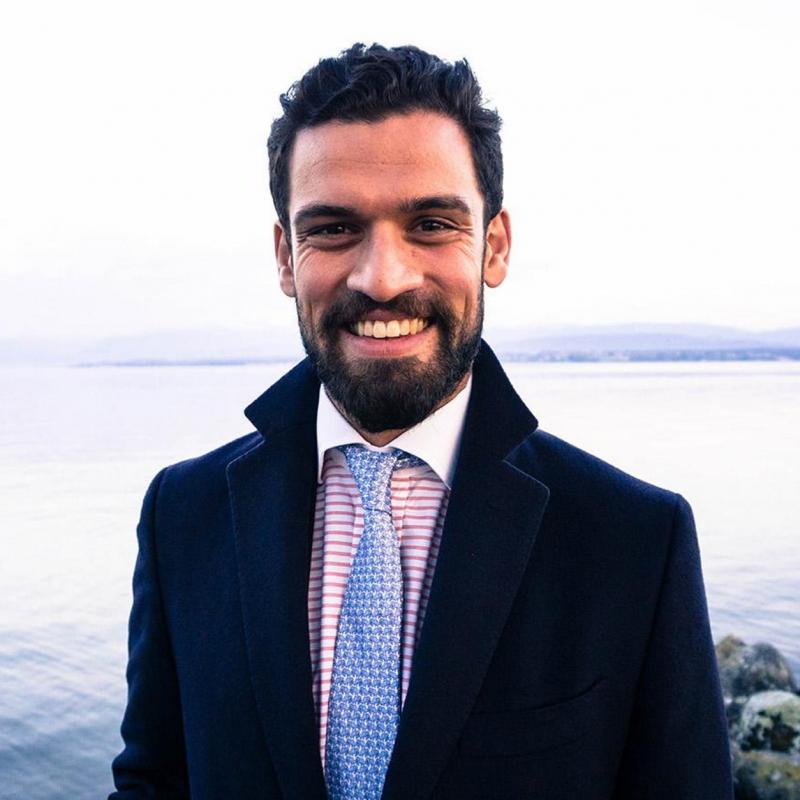Breadcrumb
With substantial experience of international development, Usman seeks new perspectives
A language graduate working for the UK government, Usman Nizami (MPP 2018) joins the MPP programme from the Department for International Development (DFID) where he has focused on the Middle East for the last six years. While doing his BA in Arabic and Spanish at the University of Durham, he pursued his interest in politics and international development through internships with international organisations and the UK Civil Service.
Having already acquired significant work experience, Usman thought it was the perfect time to take a year out to gain new skills and plan his next career move.
“For me, the MPP is primarily an opportunity to reflect on the first years of my career. The Blavatnik School had been on my radar for a while, and this was the right time to take a step back, build my technical competencies and then move onto bigger and better things.”
The renowned faculty at the School, the multidisciplinary structure of the MPP and the length of the course were what originally attracted Usman. “The 12-month commitment makes it an attractive sabbatical offer, without having the feeling that you have missed out on professional opportunities.” The School’s research credentials were another draw. “While it’s a relatively new School of Government, the research programmes are already flourishing, and the School attracts top academics.” So far, he has taken the opportunity to network not just with his peers, but also with the School’s faculty and the wider University.
The MPP course content expands upon topics and technical issues Usman has encountered through his work. “I’ve explored evidence and research-based pieces while at DFID, but here I’m looking at it through a different lens. The MPP gives a more holistic view of issues we face in our professional lives.” The negotiations module has been a highlight, in part due to the high-level external speakers teaching the classes. “It’s very impressive – we have access to people who have led some of the major conflict resolution negotiations in recent history.”
Life at the School is vibrant and dynamic, thanks to the huge range of nationalities that make up the MPP class.
“The most striking thing about this course is how international it is. It’s truly a global cohort and everyone embraces this diversity. Every week is a learning process both in and out of the classroom.”
Many people join the School looking for a change of direction, but Usman would also recommend the course for professionals on an established career path.
“The MPP gives you the chance to take time away from the routine of working life, think about the kind of leader you want to become and to refine that vision. Everything we are learning this year informs that thought process – we are being equipped to become the best public servants we can be.”
Usman believes that the course is suitable for people from a wide range of disciplines, so no one should see their academic background as a barrier to doing an MPP.
“I had an interest in public service – you shouldn’t be constrained by what the system tells you to do. I wanted to pursue what I’m passionate about. This is an opportunity to refine skills developed during undergraduate studies and the early part of a career, regardless of your academic or professional background.”
January 2019

